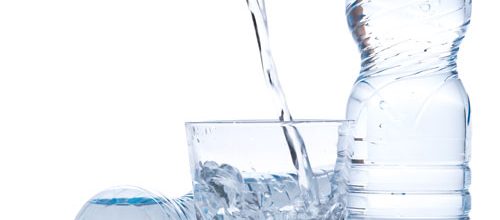
WATER – THE ESSENCE OF LIFE
Our body has many ways of telling us something is wrong. If you are worried about bad breath, dry skin, muscle cramps, fever and chills, food cravings (especially for sweets) or constant tiredness, the solution could be simpler than you think- Drink water.
Figures show that Londoners – where a fifth of patients are tired all the time – simply aren’t drinking enough water. Dehydration, which occurs when the body has insufficient water and other fluids to function properly, can lead to blood clots, seizures and other potentially fatal complications. Studies have shown that even mild dehydration can have an adverse effect on mood and energy – which is why it’s important to catch dehydration early on. But the signs aren’t always as obvious as just being thirsty or tired. Here is how dehydration can cause some uncomfortable effects…
Bad breath
Saliva has antibacterial properties, but dehydration can prevent your body from making enough of it. If you’re not producing enough saliva in your mouth, you can get bacteria overgrowth that causes bad breath.
Dry skin
As you become dehydrated, you become dizzy and don’t have enough blood volume causing very dry skin – or skin flushes because the skin is dry and not evaporating well.
Muscle cramps
The hotter you get, the higher the chances you are to get muscle cramps. The harder muscles work, the more likely they are to seize up from the heat. Changes in the electrolytes, sodium and potassium can also lead to muscle cramping.
Food cravings
When you’re dehydrated, organs like the liver which use water to release some glycogens and other components of your energy stores struggle – causing food cravings, particularly for sweets, as your body may experience difficulty with glycogen production. Craving something sweet? Snack on something with high water content like fruit and vegetables that will help you stay hydrated. Some fruits – like strawberries, melons, leafy greens and tomatoes – are more than 90% water.
Headaches
The brain sits inside a fluid sack that keeps it from bumping against the skull. If that sack is depleted or running low because of dehydration, the brain can push up against the skull and cause headaches.
How to check if you’re dehydrated
Try the skin test
Grab a roll of skin on the back of your hand between two fingers and pull it up 0.5-1cm and then let it go. It should spring back to its normal position in less than a couple of seconds. If it doesn’t, you could be dehydrated.
Check your urine
If you’re well hydrated, your urine will be mainly clear with a tinge of yellow. More yellow or orange and it’s a warning. When your body is about three percent dehydrated, your urine will be noticeably yellow. If it’s orange, your body is more than five percent dehydrated – and therefore severely dehydrated.
How to stay hydrated
- Keep water handy so you get into the habit of sipping it without thinking
- Spice up plain water with fruit juice or chunks of fresh or frozen fruit
- Try different teas like fruity (unsweetened) ice teas or a mug of hot peppermint at night. They all count
- Swap snacks with a low water content (crisps and crackers) with munchies like fresh or frozen fruit or yoghurt
- Tip the balance at meal times by making half your plate vegetables or fruit
- Opt for room temperature or cooler water, rather than extreme temperatures. Iced water will just sit in your stomach until it warms up





